Question 1 The type of gland that secretes their product dir
Question 1
The type of gland that secretes their product directly into the blood stream are called:
endocrine
exocrine
glycocrine
isocrine
3 points
Question 2
The process of cells ingesting material or \"cell eating\" is called:
phagosomosis
phagocytosis
pinocytosis
cytolysis
None of the choices are correct.
3 points
Question 3
Clumping of red blood cells is called:
hemolysis
agglutination
flocculation
precipitation
emulsification
3 points
Question 4
Which of the following serves as a packaging center for secretory products?
ribosome
Golgi apparatus
nucleolus
centriole
3 points
Question 5
The cardiovascular system includes two circuits:
the cardiac and pulmonary circuits
the pulmonary and systematic circuits
the systemic and pulmonary circuits
the cardiac and systemic
3 points
Question 6
Which of the following best describes the composition of the middle layer of an arterial wall?
smooth muscle
stratified squamous epithelium
skeletal muscle
dense fibrous connective tissue
3 points
Question 7
High blood pressure is also called:
hypertension
hypotension
hypertrophy
hyperplasia
3 points
Question 8
The cells of the nervous system that have specialized helper functions and outnumber the neurons 9 to 1 are:
neuroglia
neurons
D. chondrocytes
E. myocytes
3 points
Question 9
The most rigid type of connective tissue is:
bone
blood
cartilage
dense areolar
3 points
Question 10
Which feedback mechanism is used to reduce high blood glucose levels?
negative
positive
3 points
Question 11
Which of the following is mismatched to its location in the skin?
fat--subcutaneous layer
sense organs--dermis
keratinization--epidermis
nerves/blood vessels--epidermis
hair follicle--dermis
3 points
Question 12
The ventricles of the heart:
receive blood from the lungs and body
pump blood to the lungs and body
3 points
Question 13
The type of connective tissue that forms an internal (\"netlike\") meshwork in some organs is:
adipose
dense fibrous
reticular
fibrous areolar
3 points
Question 14
The pressure of blood against blood vessel walls is called:
pulse
blood velocity
blood pressure
cross-sectional area
3 points
Question 15
The specialized cell in the nervous system that conducts signals is:
neuroglia
neuron
neurite
astrocyte
3 points
Question 16
The type of leukocyte that responds to allergies by releasing histamine is:
neutrophil
eosinophil
basophils
monocyte
lymphocyte
3 points
Question 17
Neutrophils and lymphocytes are types of:
platelets
red blood cells
white blood cells
plasma cells
epithelial cells
3 points
Question 18
The fundamental units that make up all living things are called:
compartments
cells
chromosomes
coelom
3 points
Question 19
A red blood cell will shrink when placed in which of the following:
hypertonic solution
hypotonic solution
isotonic solution
3 points
Question 20
_______connect muscles to bones, while _____ connect bones to other bones at joints:
Ligaments; tendons
Tendons; ligaments
| endocrine | ||
| exocrine | ||
| glycocrine | ||
| isocrine |
Solution
1. Endocrine.
Endocrine glands are ductless glands that pour their secretion directly into blood stream.
2. Phagocytosis.
Phagocytosis is the process of ingesting solid food material by the cell.
3. Agglutination.
Clumping of RBCs togther is called agglutintion. This usually occurs during mismatch bloo groupings.
4. Golgi apparatus.
Golgi apparatus is concerned for sorting and packaging of material coming from ER to different destinations of the cell.
5. the pulmonary and systematic circuits
The cardiovascular system is composed of two circulatory paths: pulmonary circulation, the circuit through the lungs where blood is oxygenated, and systemic circulation, the circuit through the rest of the body to provide oxygenated blood.
6. smooth muscle
Middle layer or Tunica media is made up of smooth muscle cells and elastic tissue. It lies between the tunica intima on the inside and the tunica externa on the outside.
7. Hypertension.
Hypertension is the term used to refer abnormal rise in blood pressure.
8.neuroglia
9. bone.
10. Negative feedback.
Increase in the level of glucose.
11. nerves/blood vessels--epidermis.
12.pump blood to the lungs and body.
Ventricles act as distributing chambers supplying blood to different body organs. Right ventricle pumps deoxygensted blood to lungs and left ventricle pumps oxygenated blood to body tissues.
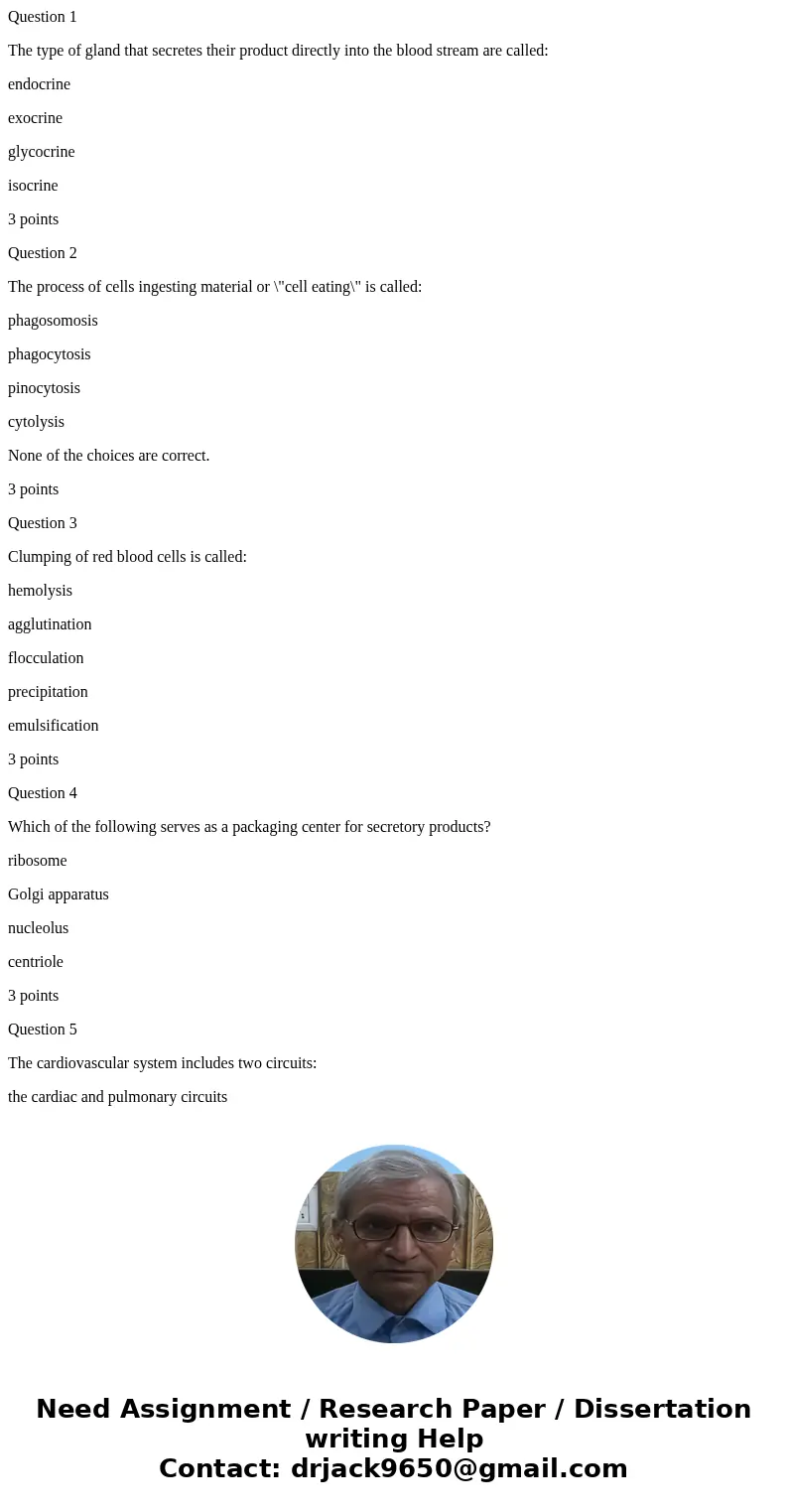
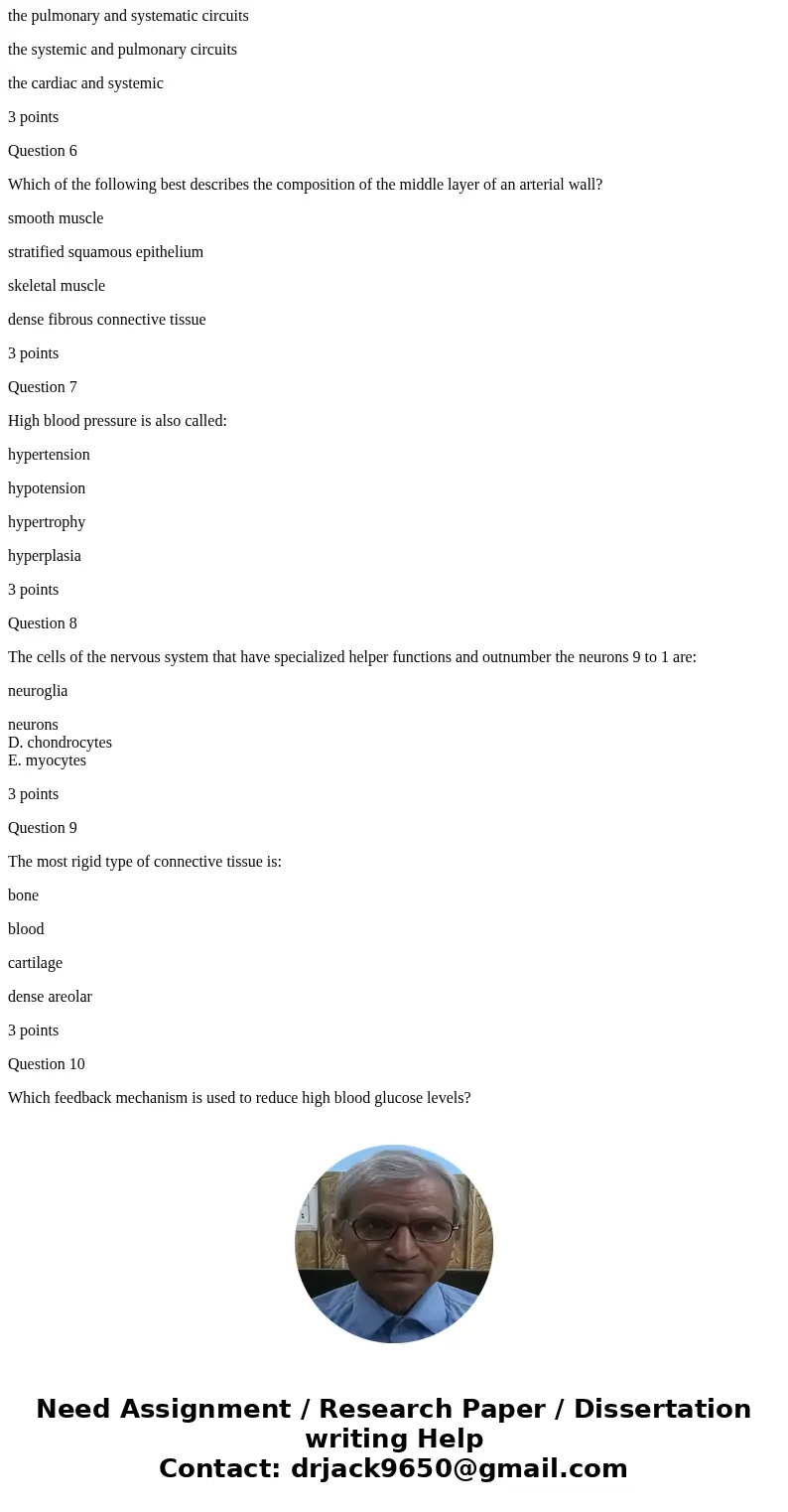
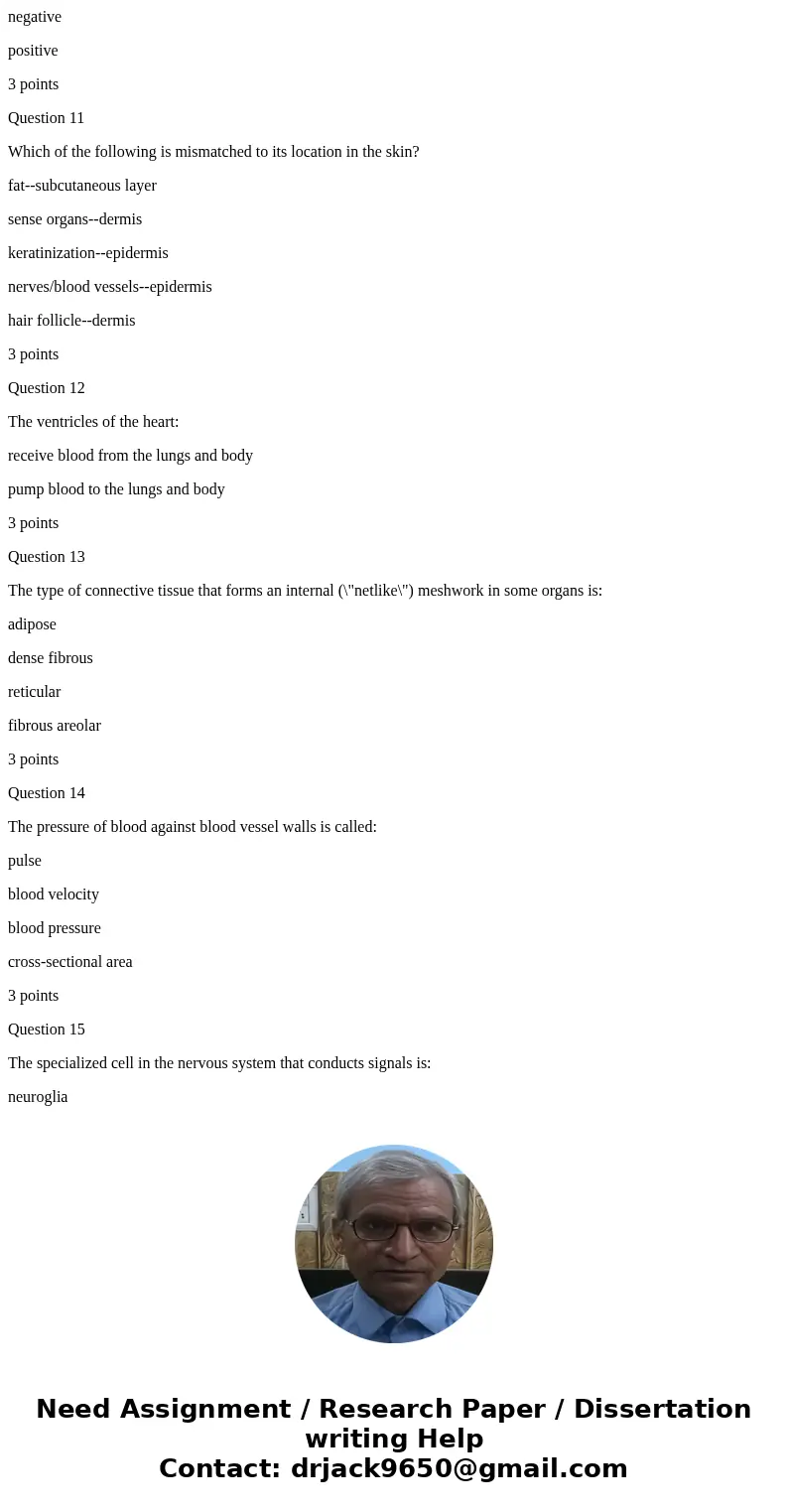
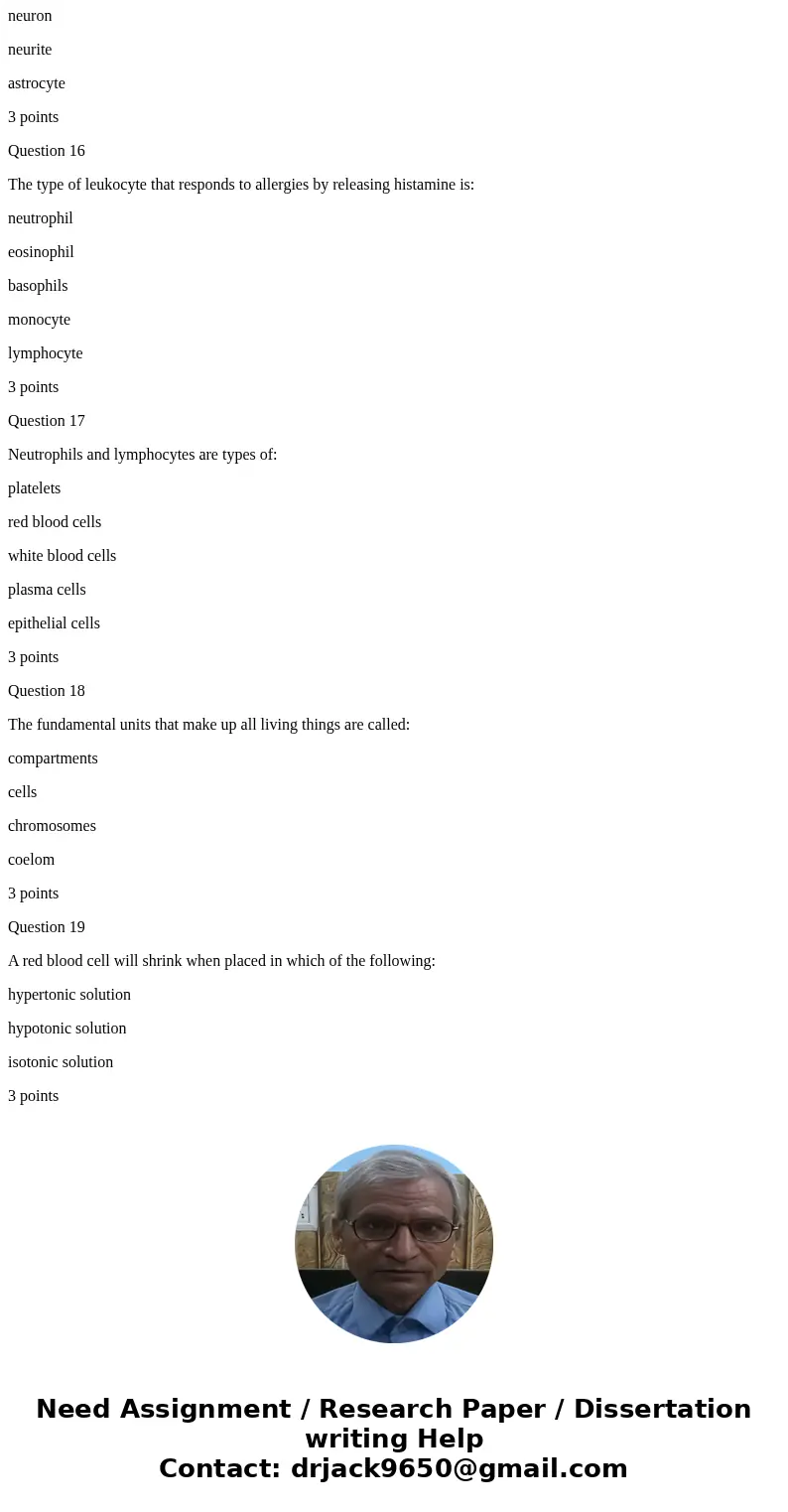
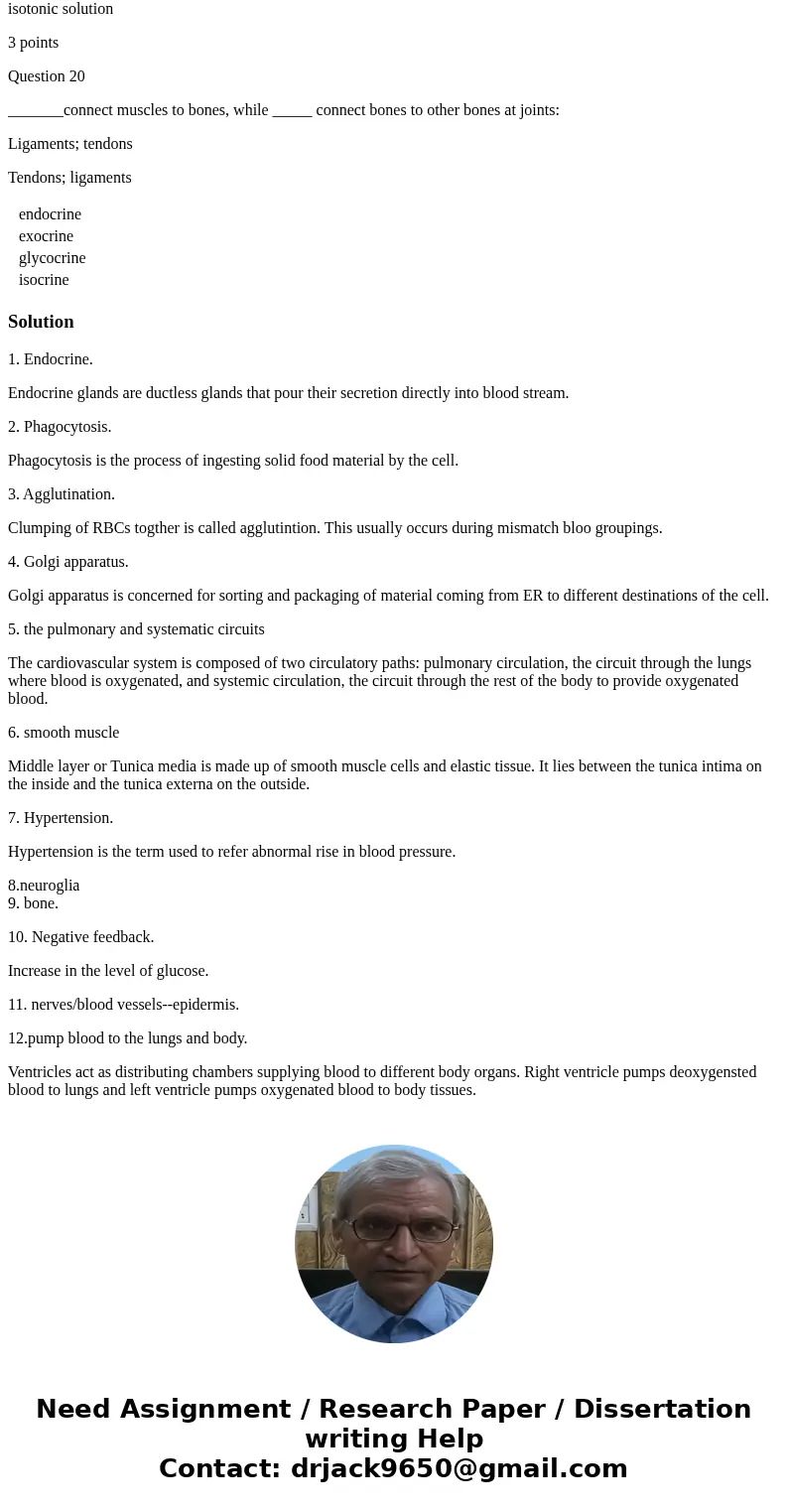
 Homework Sourse
Homework Sourse